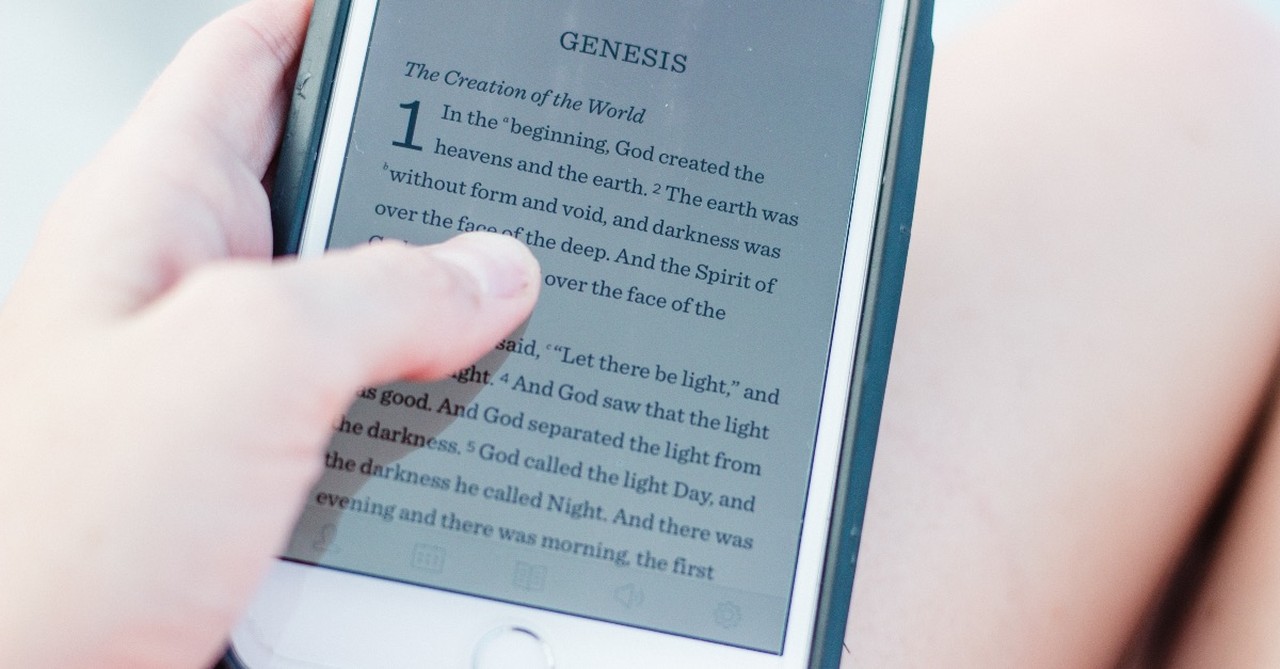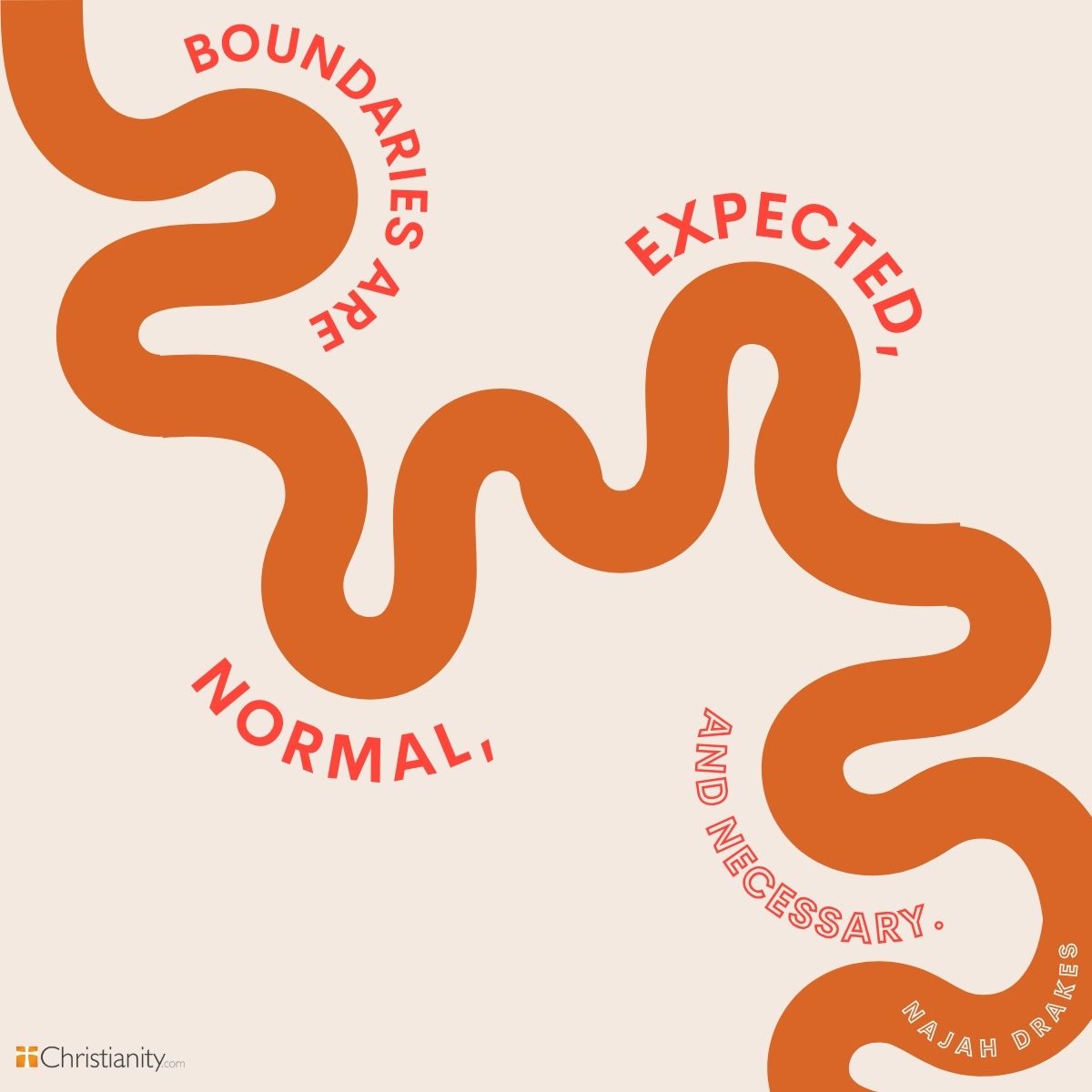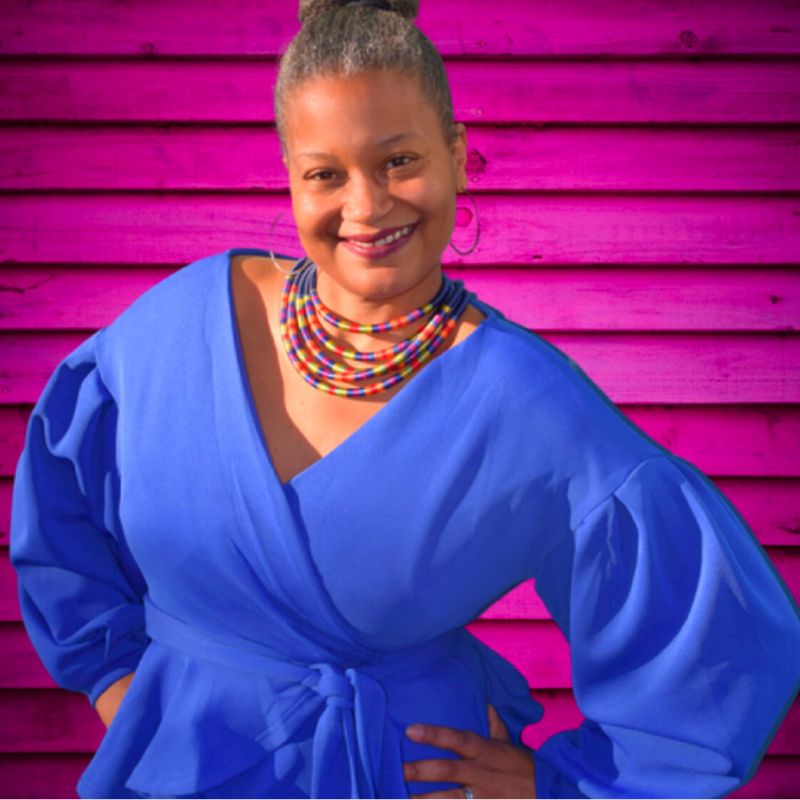7 Boundaries God Expects You to Keep

Most of us don’t like being told “No.”
This seemingly harmless two-letter word can unleash a tsunami of emotions we may have neatly packed away and labeled with a Sharpie, “off limits.” The reality is we often hear more than is being said when we find ourselves on the sending or receiving end of a “no.” While a person may simply be setting a boundary, we may hear a challenge to our identity and authority, which can feel scary and potentially threatening.
I remember the first time my cute, little, fat-cheeked, can-do-no-wrong, 1-year-old exercised his human autonomy and told me, “No!” His favorite word quickly became my least. It was as if he proudly pinned a golden badge on his chest, signaling to us all there was a new sheriff in his toddler town who wielded the power to set down the law. My heart questioned how dare this little rascal, who I labored 47 hours to get here, tell me what he was unwilling to do. Blindsided by his response, I forgot the basic truth that God hardwired each of us to start setting boundaries at an early age.
Psychologists contend that between 1 and 3 years of age, toddlers begin asserting their independence. With a child’s first “no,” parents gain clarity and insight into their child’s true desires and wants, requiring fewer assumptions. According to the famous developmental psychologist Erik Erickson, a parent’s response to their toddler’s newfound autonomy is pivotal and can affect their development well into adulthood. Critical responses from a caregiver signal to children it is risky to set boundaries, while patient and loving responses communicate that setting boundaries is safe and important.
If you struggle with setting boundaries and saying no, you are not alone. A recent study determined almost 60% of Americans have difficulty informing others that a request, action, or behavior is not acceptable. This statistic begs the question, if we are wired by God to set boundaries as children, why are they so hard to set as adults? Some of our hesitance can be traced back to our past experiences. When attempts to set boundaries are met with rejection, disappointment, or anger, old hurts, and wounds can surface, causing us to feel reluctant to set boundaries in the future.
What Does the Bible Say about Boundaries?

What Does the Bible Say about Boundaries?
SLIDE 1 OF 8
The Bible offers us a masterclass in boundary setting. Genesis depicts a purposeful, intentional God assigning each of his creations distinct boundaries by specifying their roles and responsibilities on earth. The sun, waters, shores, day and night were given a clear territory. In fact, God communicated His first “No” in Genesis. After granting Adam and Eve access to an entire garden filled with trees for pleasure and food, they were instructed to respect God’s limit - the tree of the knowledge of good and evil. When they ignored this line in the sand, they committed the world’s first sin, refusing to trust the perfection of God’s parameters. We still live with the consequences of that decision today.

Accepting and walking in the goodness of boundaries can be hard. Like Adam and Eve, we are regularly challenged to communicate and stand firm in our convictions. If Eve simply responded “no” to the serpent’s temptation, sin may have never entered the world. Settling for an easy “yes” can forfeit the long-term benefits of maintaining strong boundaries, resulting in consequences that tend to be harder, more painful, and longer-lasting.
Boundaries communicate a standard of acceptable behaviors that are required to live the purposeful lives God intended for us. Below are seven types of boundaries God expects us to set.
Photo Credit: Jenny Smith/Unsplash
1. Boundaries on Our Thoughts

1. Boundaries on Our Thoughts
SLIDE 2 OF 8
It’s easy to doubt and fear. In challenging situations, I could be nominated to win the award for creating the most outrageous, unlikely “what if” scenarios in my mind. If I’m not careful, my runaway thoughts can lead me into dangerous territory. When we do not proactively manage our thoughts, our minds become prime real estate for discouragement, depression, overwhelm, and even anxiety to set up residence. Philippians 4:8 instructs us to think about those things which are true, noble, right, pure, lovely, admirable, excellent, and praiseworthy.
"Finally, brothers, whatever is true, whatever is honorable, whatever is just, whatever is pure, whatever is lovely, whatever is commendable, if there is any excellence, if there is anything worthy of praise, think about these things." - Philippians 4:8
Otherwise, our hyperactive imaginations can cause our fears to seem more likely to happen than they truly are. God’s Word places our thoughts and fears in perspective and reminds us that every outcome is subject to the sovereignty of a God who has good plans and hope for us (Jeremiah 29:11). Instead of ruminating on the worst, we are called to cast down negative thoughts and renew our minds. In doing so, we avoid conforming to the behaviors of this world and become transformed into His image (2 Corinthians 10:5).
"We destroy arguments and every lofty opinion raised against the knowledge of God, and take every thought captive to obey Christ." - 2 Corinthians 10:5
Photo Credit: ©Getty Images/LaylaBird
2. Boundaries on Our Reactions

2. Boundaries on Our Reactions
SLIDE 3 OF 8
We are living in a highly divisive time. Verbal attacks on social media and in real life are running rampant. As Christians, how should we handle ourselves when attacks land at our front door? Jesus was no stranger to insults. On the cross, His identity and points of view were challenged and mocked, but He didn’t return lash for lash. Instead, He pleaded with the Father on behalf of His crucifiers to forgive their ignorance. While we may be tempted to hurl back a clever keyboard warrior response when insults come our way, God says “no” to quick, hot-tempered reactions. Instead, He instructs us to be slow to speak, quick to listen, and slow to anger (James 1:19).
"Know this, my beloved brothers: let every person be quick to hear, slow to speak, slow to anger." - James 1:19
Photo Credit: Sara Kurfess/Unsplash
3. Boundaries on Helping Others

3. Boundaries on Helping Others
SLIDE 4 OF 8
Jesus did not enable His followers. He empowered them. When the lame man in Bethesda complained that no one would place him in the pool for healing, Jesus prompted him to take actions within his control. In response, the man stood and walked, albeit at a slow pace, reserving what was beyond his capability for Jesus. The man took the first step, and Jesus took the next by honoring the man’s request to be healed. Similarly, when Jesus encountered the woman at the well who was living in sin, He offered her what she couldn’t provide for herself. He granted her forgiveness and directed her to repent from a lifestyle of sin. It is best when we resist the temptation to interfere in the work God reserves for Himself alone. While one man plants a seed and another man waters it, only God can make it grow (1 Corinthians 3:6-9).

"I planted, Apollos watered, but God gave the growth. So neither he who plants nor he who waters is anything, but only God who gives the growth. He who plants and he who waters are one, and each will receive his wages according to his labor. For we are God's fellow workers. You are God's field, God's building." - 1 Corinthians 3:6-9
Photo Credit: Austin Kehmeier/Unsplash
4. Boundaries on Our Time

4. Boundaries on Our Time
SLIDE 5 OF 8
As a mom of 5, it can often feel like I'm always running out of time, but is that really true? Despite the constant feeling of racing against the clock, God allocates a time and season for every activity under the sun. God’s focus is not speed but completion. He calls us to run and finish the race, which He set before us with endurance (Hebrews 12:1). Endurance is reserved for long-distance runs, not short-term sprints. Instead of attempting to finish strong, aim to finish well. It takes time to develop the characteristics of a good and faithful servant. Establish an intentional plan, execute it in decency and order, and align it with the vision, priorities, and purpose God planted within you.
"Therefore, since we are surrounded by so great a cloud of witnesses, let us also lay aside every weight, and sin which clings so closely, and let us run with endurance the race that is set before us." - Hebrews 12:1
Photo Credit: ©iStock/Getty Images Plus/fcscafeine
5. Boundaries on Our Priorities

5. Boundaries on Our Priorities
SLIDE 6 OF 8
Could you imagine finding out a close friend died, and your loved ones blamed you? After the death of Lazarus, Jesus found Himself in this exact position. Mary and Martha were deeply disappointed Jesus refused to save their brother, his close friend, from death. Instead of defending himself from their accusations, He double-downed on His assignment. Lazarus’s sisters prioritized preserving his life, but Jesus’s objective was to resurrect it. There was more power in the resurrection than in rescuing Lazarus. If Jesus merely prevented death, spectators could question whether Lazarus survived as a result of pure luck or the power of the King. Jesus erased every doubt by prioritizing and glorifying the Father.
Starting with our most obvious and urgent demands may not properly elevate the most important. To understand our priorities, we must seek first the kingdom of God and allow Him to add to and order our things-to-do list. Like Mary, we are called to petition God on our knees before we busy ourselves using our hands and feet.
Photo Credit: Bongkarn Thanyakij/Pexels
6. Boundaries with Our Heart and Soul

6. Boundaries with Our Heart and Soul
SLIDE 7 OF 8
The heart, mind, and soul are vulnerable entry points that must be protected. They comprise our inner being and drive our beliefs, thoughts, and actions. Out of our hearts, our mouths and actions speak (Luke 6:45). Author Cathy Baker describes the heart as our inner being, the place from which our deepest thoughts and desires are birthed. This is why we are admonished to guard our hearts (Proverbs 4:23). Our goal is to strengthen our inner man, not weaken it. God desires us to limit engaging in actions and with people that threaten the substance of our identity. At the end of the day, gaining the whole world is not worth losing our soul (Matthew 16:26).
"For what will it profit a man if he gains the whole world and forfeits his soul? Or what shall a man give in return for his soul?" - Matthew 16:26
Photo Credit: ©Getty Images/Irina Vodneva
7. Boundaries with Our Physical Bodies

7. Boundaries with Our Physical Bodies
SLIDE 8 OF 8
Everyone loves a clean house, but keeping a clean house takes hard work. Because our homes often serve as a safe haven, we don’t willingly give access to unwanted or dangerous guests. If invaders attempt to push past our front door without an invitation, it is our job to hold our position and guard our valuable assets. Similarly, entrants must respect the rules of our homes. It is a protected territory. We are instructed to honor God with our bodies (1 Corinthians 6:19). While this particular scripture addresses sexual immorality, I believe it can be applied more broadly. Our bodies house the spirit of the living God. Allowing our bodies to be disrespected or abused does not bring honor to God. It is our responsibility to ensure the temple we live in remains a clean, healthy, safe place for the Holy Spirit to dwell. Boundaries are normal, expected, and necessary.

While at first, they may feel uncomfortable to enforce, the more we practice, the less wobbly we feel as we take steps to maintain them. If you struggle with boundaries, I pray that you can muster up the boldness of a fearless one-year-old, anchor yourself in God’s Word, and stand firm in your “no” in a world that keeps pushing you to say “yes.”
Photo Credit: ©iStock/Getty Images Plus/CentralITAlliance


Originally published October 21, 2024.










